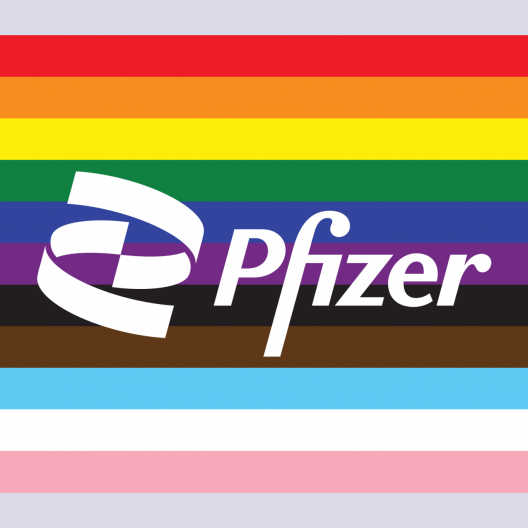
Pfizer DE&I leader on the intersection of neurodiversity and LGBTQ+ communities
Interviews
Tanya Garcia, leader of a business systems team in Manufacturing, Science and Technology at Pfizer, spoke to myGwork about how neurodiversity and LGBTQ+ identities intersect. From resource groups to advice to allies, Tanya delves into the challenges and barriers faced by neurodivergent people in the workplace.

Hi Tanya, thanks for chatting with us - tell us a bit more about yourself.
Hello, I’m Tanya Garcia, the leader of a business systems team within a Manufacturing, Science, and Technology group at Pfizer. In my 11-year tenure at Pfizer I have been deeply involved with budget management and operational support across various teams.
I am also active in many local colleague resource groups (CRGs). I lead the Diversity, Equity, & Inclusion (DEI) team within my group, serve as the admin for our local Indigenous Peoples CRG, and participate in the steering committee helping with communications for the Women’s Resource group. I am also a co-lead for our new Neurodiversity Colleague community. Oh, and I have ADHD as well as generalized anxiety disorder.
Can you share your experiences as a neurodiverse person in the workplace, particularly any challenges you have faced and how you have overcome them?
Finally receiving my neurodiversity diagnosis in May 2022 was a turning point after years of navigating the professional landscape without understanding or support. Initially, I grappled with task prioritization, maintaining focus, and confidently contributing to meetings not due to shyness but from pervasive self-doubt. Reflecting on past performance reviews, the theme of needing to improve time management frequently emerged.
My journey towards improvement involved embracing various coping strategies that have significantly enhanced my work life. Incorporating music, utilizing noise-canceling headphones, relying on calendar reminders, and leveraging productivity apps have been game changers. Previously, my workspaces were situated in bustling open areas that were maddening to me where constant distractions challenged my focus. It took numerous adjustments to find an environment conducive to my needs.
Share with us some personal successes or achievements you are proud of as a neurodiverse person in your professional life.
I am most proud of the DEI & CRG work that my teams have done to make Pfizer a safe space for everyone. Being able to be a part of something that makes such a huge impact for our people is where my heart lies. I am also proud of the business systems team that I have created which is first-of-its-kind at Pfizer. This team’s support really bridges the gap between department leads and finance.
My experience, marked by late diagnosis and the search for effective accommodations, fuels my commitment in fostering an inclusive workplace so others do not need to suffer like I did. That is why I am so passionate about starting our Neurodiversity community.
How do you see the intersectionality of being neurodiverse and belonging to the LGBTQ+ community influencing your professional journey, and how do you utilize it to your advantage?
Even without a diagnosis, I was acutely aware of my distinct perspective, fueled by innate curiosity and sensitivity to my surroundings. This heightened awareness has always made my approach to problem-solving stand out, offering alternative solutions and insights that diverge from conventional thinking. My early recognition by a forward-thinking manager affirmed the value of diverse thought patterns in leadership, reinforcing the belief that diversity enriches team dynamics and leads to more robust solutions.
I think that both neurodivergent and LGBTQ+ groups are less influenced by social norms and expectations and more accepting of people in general. I did not come out at work until I joined the Out Pfizer Employee Network (OPEN). As a bi person in a heteronormative relationship, I do not experience the same marginalization and oppression that some other members of the LGBTQ+ community experience. With this knowledge came a sense of guilt for taking up space. I was content with being recognized as an ally and a safe space. However, being a part of groups like OPEN helped me realize that there is space for everyone.
Embracing and openly sharing my true self has unexpectedly expanded the space for others to do the same. Owning my identity and being authentic is valuable not only because it boosts my confidence, but also because I want to inspire others to be themselves too. As I have grown over the years to embrace who I am, I have noticed that people feel safer and more confident in my care to help them solve issues.

Have you encountered any specific barriers or biases as a neurodiverse person in the workplace? How have you navigated those, and what advice would you give to others facing similar challenges?
In my professional journey, the most daunting barriers stem from my unique learning style and the challenge of self-advocacy. These obstacles often made advancing in my career more complex than it might have been for others. Despite being a natural problem solver and mastering numerous systems on my own initiative, advocating for my worth and capabilities has been a persistent hurdle. Recognizing this challenge was the first step towards overcoming it. I sought out external resources, including training programs and mentorship from friends. This proactive approach has been crucial in navigating the barriers I've faced.
My advice is to not let anything define or limit you. Your distinct abilities and viewpoints can benefit both society and your workplace. Seek out and seize opportunities that align with your objectives and areas of interest. Try new things and pick up new skills without fear. Seek out and establish connections with individuals who value and uplift your uniqueness. Honor your accomplishments and learn from your mistakes. Most importantly, don’t forget to share your knowledge so you can hold open those doors you had to break down on your way in.

